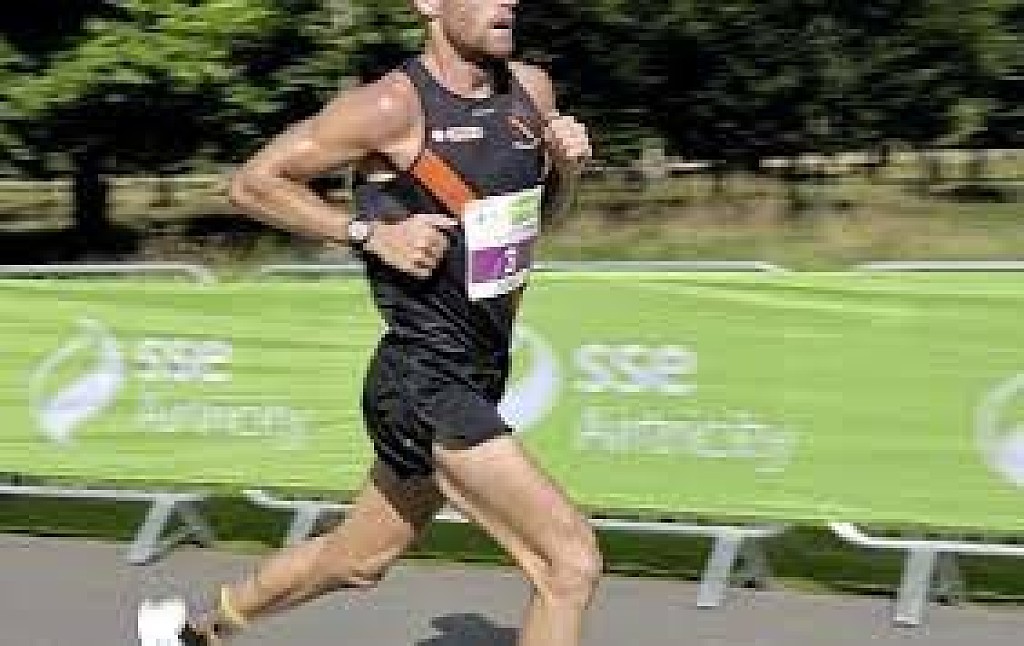Running News Daily
Running News Daily is edited by Bob Anderson. Send your news items to bob@mybestruns.com Advertising opportunities available. Train the Kenyan Way at KATA Kenya and Portugal owned and operated by Bob Anderson. Be sure to catch our movie A Long Run the movie KATA Running Camps and KATA Potato Farms - 31 now open in Kenya! https://kata.ke/
Index to Daily Posts · Sign Up For Updates · Run The World Feed
After waking up in a pile of vomit right before XMAS, Irish 2:09 marathoner Stephen Scullion hasn't drank alcohol since
‘I didn’t even stay home for Christmas because I pretty much didn’t trust myself to stay and not drink again’
Olympics-bound Scullion opens up on ‘wise’ decision to bin booze as he continues pursuit of happiness

Stephen Scullion woke up in a pile of his own sick a few days before Christmas.
The Tokyo-bound marathoner was back home on holiday in Belfast.
“I had drunk way too heavily and had thrown up on the bed.
“I ended up booking a flight back to England the next day. So, I didn’t even stay home for Christmas because I pretty much didn’t trust myself to stay and not drink again.”
Scullion hasn’t touched alcohol since. His decision to quit was also influenced by a tweet posted by recent Oscar-winning Welsh actor Anthony Hopkins. “With gratitude, I celebrate 45 years of sobriety,” wrote Hopkins on December 29.
“I know how much it (alcohol) messes with my psychology, and I know it doesn’t help my running. I’m always running away from situations that probably I could end up being in where I would drink too much, go over the top.
“I tried to think of one time in my life where alcohol has actually done something good for my life, and I couldn’t think of one thing. I think I used to not drink because of running.
“Whereas this time, before Christmas, I made the decision I was going to do this for me. I do all this work to try (and) improve my mental health, try to be happy, and then to go ruin it, just by being greedy with alcohol. I just decided I don’t want to do this anymore.”
“Honestly, it’s not like I had a drink problem. The problem was I’m greedy. It’s not like I’m borderline alcoholic or anything like this.”
It was what happened after he drank that was the issue.
“I could drink and drink and drink and everyone thought I’m fine and in a great mood. And then my body decides I can’t process all this alcohol, because I normally live up a mountain like a saint.
“And here you are hammering 10 pints or 12 pints and shots, and yeah, then my body just rejects it, and I’d be incredibly low.”
Occasionally there were days when he couldn’t get out of bed because his “body was so broken from boozing”.
“It has just been a wise decision on my part. But I miss going and having a pint with my dad. I miss things like this because they are safe, and they are good.
“But the way I see it if I can’t handle it all then it is not worth it. I don’t want to go for a pint with my dad five times and think, ‘Oh, I’ve changed, oh, I’m better now, oh, I’m not greedy anymore’ because I know it will always be there.”
Scullion, who ran a career-best marathon time of 2:09.49 when finishing 11th in last October’s elite London, did seek professional help last year to cope with mental health issues.
“In September (2020) I reached out to the Sports Institute in Northern Ireland and said I wasn’t doing well. I was doing brilliant at running, that’s the easy part for me.
“I said I needed some help and they set me up with a sports psychiatrist in London. I spoke to the sports psychiatrist for three months and I started anti-depression medication after the London Marathon.
“If you take a hay fever tablet and run off into a field where there’s grass, you’re still probably going to have hay fever, and an anti-depressant medication tablet cannot fix everything. But I had to fix a lot of things in my life that gave me a chance to be happier. Sport is really tough and there’s a lot of pressure and you can put pressure on yourself, get a bit obsessed. I tweeted not long ago: ‘Do you exist, or do you live?’
“Part of being a really good professional is there are periods of time where you have to probably just exist. That means getting up early, doing your training, sleeping, resting, focusing on all the little details, because other people will do that.
“Other people are willing to go to places where they are probably not mentally stable or happy.
“If you want to be competitive, your life might not always be in balance. But in order for me to protect the longevity of Stephen Scullion and so that Stephen Scullion’s career flourishes in three or four or five years’ time, when I can be the best possible athlete I can be, I need to move away from that existence every now and again and live.”
For Scullion, ‘living’ is going to visit his parents’ allotment in Belfast where they raise chickens and grow potatoes and onions.
“That, to me, is living,” he says.
Running-wise, Scullion is performing better since undergoing surgery to correct a breathing issue which was diagnosed as asthma 15 years ago.
A London-based specialist, Dr James Hull, suggested he had a condition called exercise-induced larynx obstructions (EILO).
“The condition means your vocal cords are working against you almost, as you breathe, closing your airways and creating the wheezing effect. Asthma is supposedly wheezing on the exhale, whereas I wheeze on the inhale.”
The surgery in London was a success. So much so that in terms of his running he feels he has been set free.
Now his focus is on the Olympic marathon in Sapporo on August 8.
Login to leave a comment




